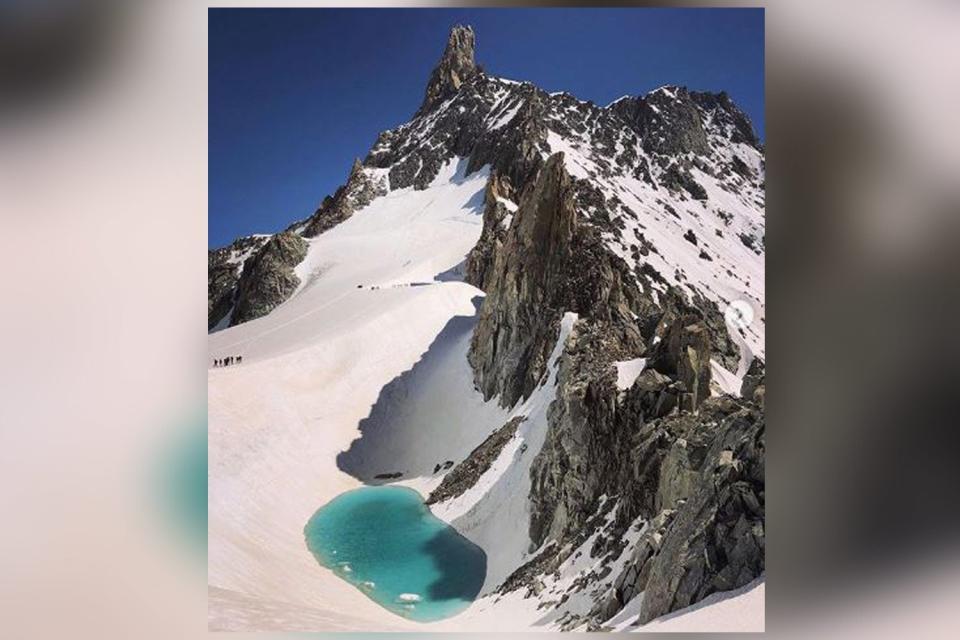New lake discovered at 11,000ft in Alps after heatwave hit France
A climbing instructor was shocked to discover a lake had appeared in the Alps at over 11,000ft after a heatwave caused snow to melt.
Bryan Mestre stumbled across the lake at the base of Dent du Géant and Aiguilles Marbrées in the French Alps where all water is normally frozen.
But after a huge heatwave swept Europe bringing record temperatures to France, parts of the ice and snow had melted into a pool 30 metres wide.
The country saw its hottest ever temperature on June 28 – 45.9C – with Chamonix at 3,400ft reaching 36C.

Mr Mestre, 24, who lives in Chambéry in the Alps, told the Standard: “I was surprised to see it - in the Alps above the 3000m line, water is always supposed to be in a frozen state.
“When we go climbing for a day, if we bring a bottle of water or a camelback, the water starts to freeze after a few hours, even though it was in our backpacks all along, to give you an idea.
“I have seen similar events in the Andes or in the Rockies, but the ecosystem is a lot different there.
“Snow is permanent in the Alps above 3000m - it's not supposed to melt.
“Of course, with the whole global warming deal, it does melt, but it doesn't get this big.
A post shared by Bryan Mestre (@bryanthealpinist) on Jul 15, 2019 at 11:43am PDT
He added: “I'm not a scientist but it's obvious that it's a direct effect of the heatwave that stroke Europe in June.
“I don't know if anything can be done really, it's not just a local problem, it's global.
“To give you an idea on how crazy the climate is, 2 weeks ago we had the biggest heatwave in France's history, and two days ago we had a snowstorm above 2700m.
“So the good thing is, it froze over and it's sort of back to normal now, but we're expecting another heatwave next thing, so it'll probably just melt again - it's a permanent problem now.
“And the danger with liquid water on glaciers... Well if it sneaks under and just accumulates there, it'll speed up the process, generate more liquid water and at one point it will have to empty itself somewhere. Let's just hope it won't be on a city!”

 Yahoo News
Yahoo News 
